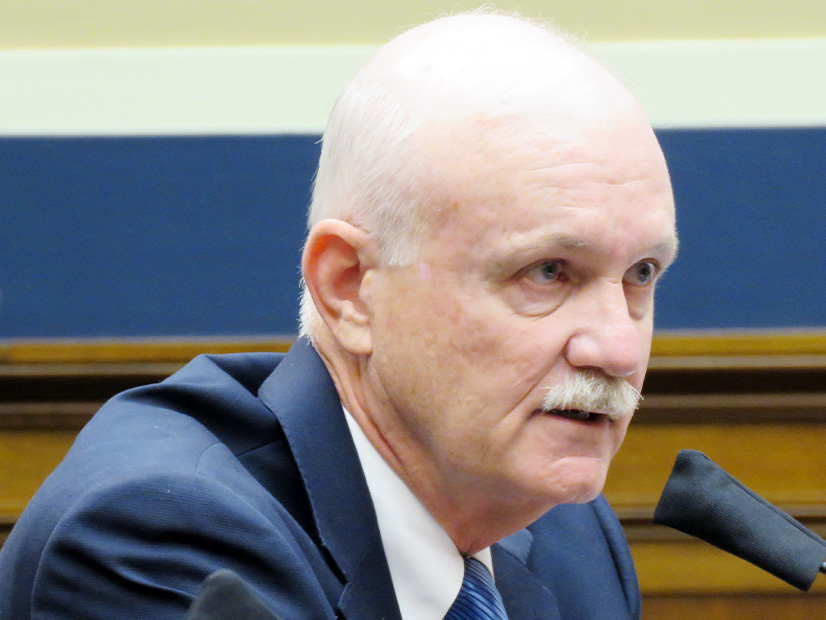Christie Talks up Flexibility of Transmission NOPR

FERC Commissioner Mark Christie said the agency's transmission NOPR gives states "flexibility and creativity." | © RTO Insider LLC
Jun 26, 2022
FERC Commissioner Mark Christie said the agency's transmission NOPR gives the states plenty of flexibility to plan their public policy-focused projects.


